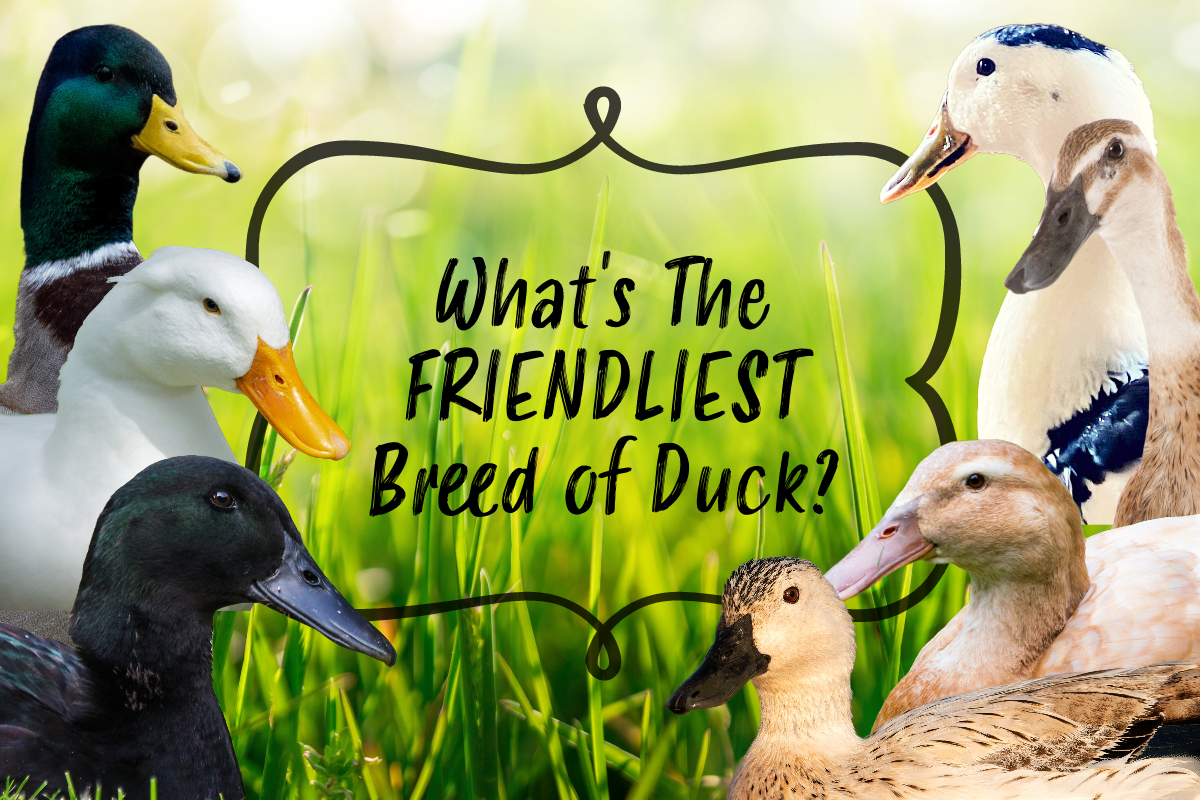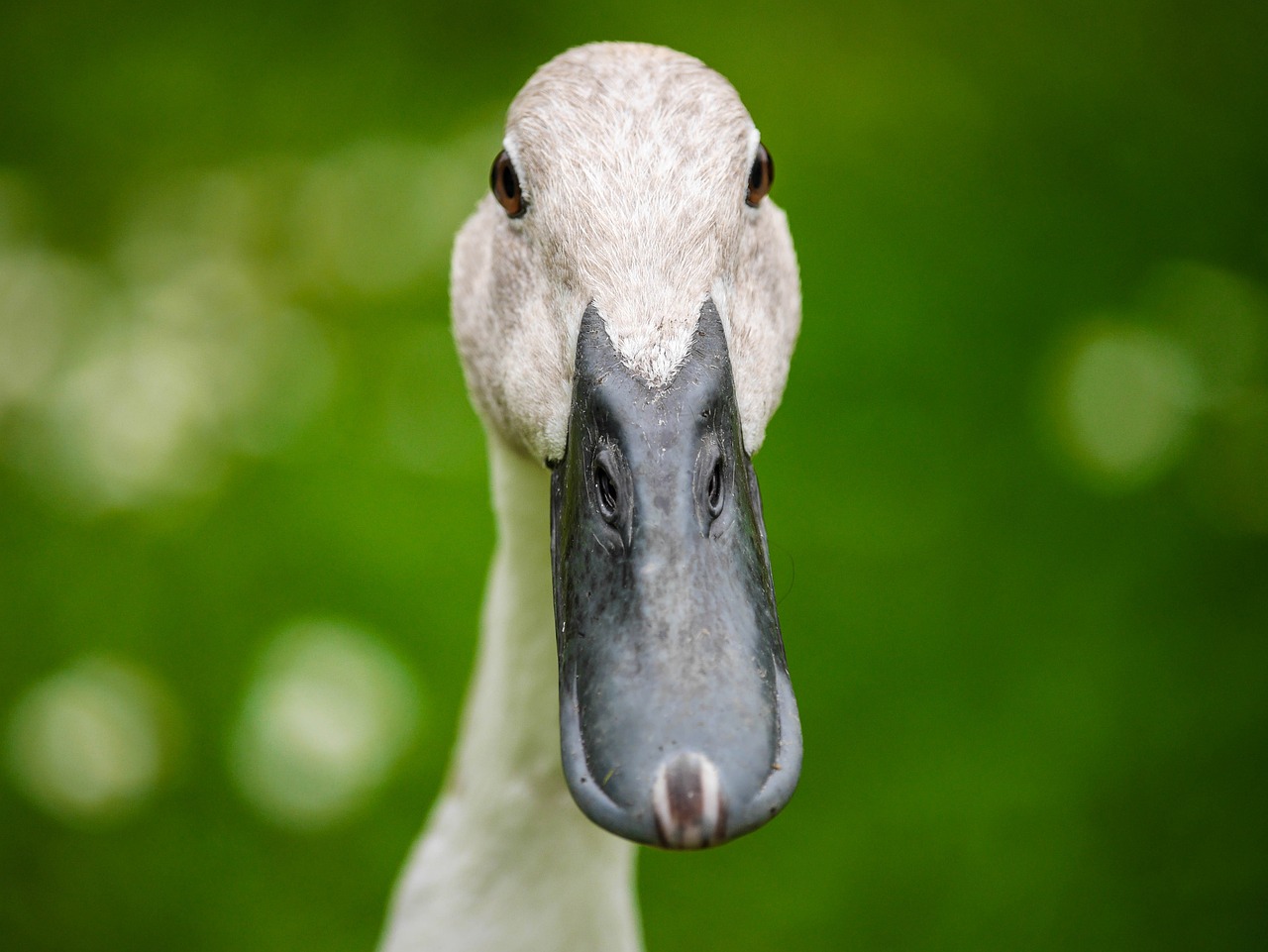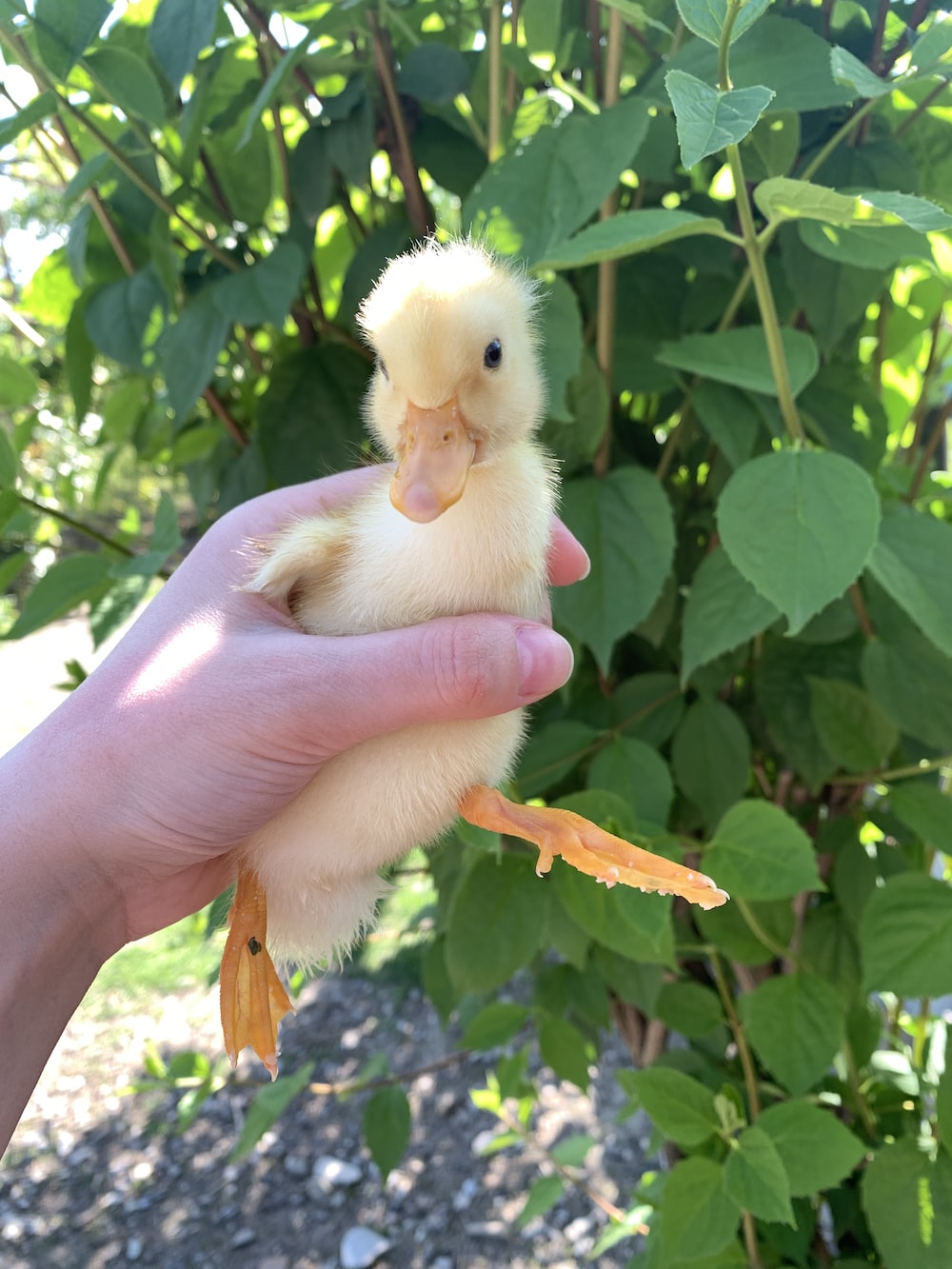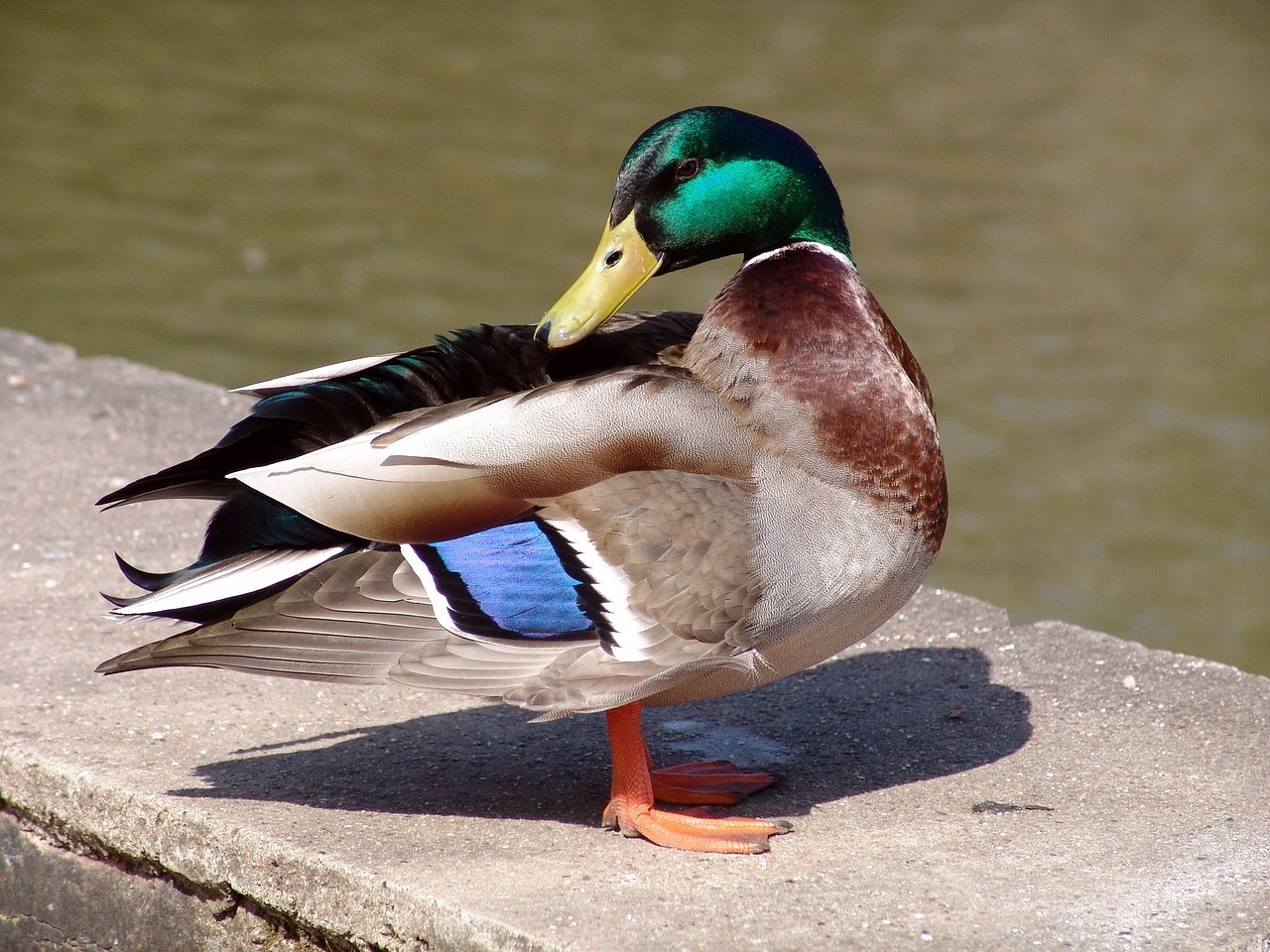Okay, future duck owners, pull up a chair and let's dive into one of the most debated questions bouncing around in the duck groups on Facebook: "Which breed of duck is the friendliest?" I see this question posted several times a day. And every. Single. Time. The floodgates of personal experiences open. Cue hundreds of comments from people advocating for their favorite breed of duck.
Let me put this out there: The answers given to this question are pretty much completely useless, which unfortunately leaves the person asking the question more confused than they were before they asked. Too many generalizations are made. We've got some de-bunking to do, folks. Part of the intrigue of ducks is that each duck has a unique personality. Expecting all members of a breed to act a certain way? That's setting ourselves up for some misconceptions.
And before we get any deeper into the question of which duck is the friendliest, let's just clear this up: ducks aren't quite like dogs. That Golden Retriever friendliness you're hoping for? It's not a breed thing when it comes to our quackers. So, if you're on a hatchery website wondering which button to click to get the ultimate cuddle-duck, or you're just curious about what makes a duck "friendly", let's break this down together!
The Subjectivity of Duck Friendliness
Every duck enthusiast has their own personal tale to tell about their experience with their ducks. Browse through any duck-related forum or Facebook group, and you're likely to see an array of anecdotal claims. For example, you may get a nice lady from Wisconsin, gushing about her Khaki Campbell who would faithfully waddle after her from dawn till dusk while their Pekin duck couldn't care less about her. But then there's a man from Vermont, lamenting how his Khaki Campbell seems more interested in the pond than any human interaction, but his beloved Pekin is always waiting for him at the gate every morning.
It's fascinating, isn't it? Two ducks of the same breed with such distinct personalities and behaviors. It really is so interesting to read through these anecdotes and see what everyone's ducks do to express their friendliness (or lack thereof). But while these stories are entertaining and heartwarming, they highlight a critical point: personal experiences, while valuable, aren't a universal standard.
Sure, one or a few people may have a Khaki Campbell with a great temperament, but that doesn't mean every Khaki Campbell is destined to be a human-loving confidant. It's essential to approach these tales with a grain of salt and an understanding heart. After all, there's a whole world of variables that come into play
Not Like Dogs: Why Friendliness is not Breed-Specific in Ducks
When you think about friendly pets, dogs often come to mind. We've all heard of Golden Retrievers being excellent family dogs, or Chihuahuas being notably feisty. These breed-specific generalizations exist because, over centuries, dogs have been bred for particular traits, including temperament.
However, ducks are somewhat different.
It's a common misconception to assume that duck friendliness is as hardwired as some dog breeds' temperaments. While certain duck breeds might generally have tendencies toward specific behaviors due to their historical roles (like Call ducks being significantly louder because of their utility for duck hunting), there's still a huge amount of individual variation within each breed.
In essence, thinking that a particular breed of duck is automatically friendlier than another is oversimplifying things. Even if a majority of Mallards you meet are skittish, there will be quite a few as cuddly as a teddy bear. Ducks have personalities that are molded not just by genetics but also by their environment, upbringing, and unique life experiences.
In the end, it's limiting and not entirely accurate to pigeonhole a duck's potential for friendliness based on its breed. It's much like judging a book by its cover: you might miss out on a fantastic story inside. So, now that we know that duck friendliness has little to nothing to do with its breed, let's see what factors do influence the friendliness of ducks.
Factors That Actually Influence Duck Friendliness
Ducks, like people, are products of both their genetics and their environment. While some may assume a duck's breed dictates its behavior, there are numerous factors that genuinely impact a duck's demeanor. Let's dive into some of these.
Upbringing & Handling: The early days of a duck's life are paramount. Ducks that are hand-raised and have regular, gentle interactions with humans tend to be more receptive and friendly towards them. Conversely, those that have minimal human contact during their formative days might remain wary of humans throughout their lives. You will see some ducklings raised fragilely and handled all the time suddenly turn one day to be not so friendly anymore. I consider that to be due to
"duck puberty" (which is a thing like it is with mammals) where they are sexually mature and flooded with new hormones.
Environment: Think of the environment as a duck's home and playground. If this space is clean, spacious, and safe, ducks will likely be happier and less stressed. A duck that doesn't have to worry about predators or cramped conditions can be more relaxed and amiable.
Social Structure: Ducks are inherently social creatures. Their interactions with fellow ducks shape their behaviors significantly. It's essential to understand their pecking order and the dynamics of duck social hierarchies. A duck that's constantly bullied might be more withdrawn, while one that feels secure in its flock could be more open to human interaction.
Health: It's a simple but often overlooked fact: a healthy duck is generally a happier duck. If a duck is under the weather or has chronic health issues, it might not be as outgoing or friendly. Consistent check-ups and vigilance regarding their health can prevent issues that might otherwise change their behavior.
In sum, the breed might give you a general idea, but if you're looking to understand why a duck behaves the way it does, you'll need to look at its life experiences, environment, and overall well-being.
How To Nurture a Friendly Duck - Tips and Tricks
So, you're eager to build a bond with your ducklings or perhaps coax some love out of a standoffish adult duck. There's no guaranteed formula to turn every duck into a cuddly companion, but a few guidelines can help.
Early and Gentle Handling: If you're starting with ducklings, it's all about first impressions. Gentle handling from their first days and regular interaction can foster trust. The more they recognize and get comfortable with your presence, the better.
Feed Them Well: The way to a duck's heart is through their stomach (or, their crop). Regular hand feeding sessions where they associate you with food can do wonders. Giving age-suitable treats are However, always ensure their diet is balanced and nutritious.
Know Your Ducks' Personalities: Do you have the same exact personality as your sibling? Probably not. Likewise, every duck is an individual, and recognizing their unique quirks is essential. Some might love splashing around with you nearby, while others prefer observing from a distance. Adjust your interactions based on their comfort level and respect their boundaries.
Consistency in Care: Your ducks should see you as a constant in their lives. Regular feeding, cleaning, and interaction times help them recognize and trust your routine.
Meeting Adult Ducks: If you're considering adopting an adult duck, it's a different ball game. A meet and greet can be invaluable. Spend time observing their behavior and interacting with them to gauge their temperament before buying.
Wild Instincts Reminder: While ducks have been domesticated, they haven't been bred for temperament to the same extent as some other animals, like dogs. Always keep in mind that they have instincts that lean closer to the wild. Approach with patience, understanding that each duck will have its unique way of engaging with its environment and you. Remember, ducks might have been primarily bred for egg laying or meat purposes and not for temperament, but that doesn't mean they can't be wonderful, interactive pets.
So What Breed of Ducks Should You Get?
While the allure of having the 'friendliest' duck might tempt many, it's paramount to understand that ducks aren't just about friendliness. You should choose a breed that works for your interests and needs.
When embarking on the quest to find your perfect duck breed, it's perfectly okay to consider the aesthetic appeal. Do certain colors or patterns tickle your fancy? Maybe you're after the tininess and elegance of a White Call duck and you don't mind the loudness of that breed. Perhaps the vibrant hue of a Blue Swedish duck or the fancy pattern of a Welsh Harlequin catches your eye. Next, ponder on the practicalities. If you desire a prolific layer to grace your breakfast table with fresh eggs then you may go with a Khaki Campbell or Magpie. If a show-quality specimen for 4-H or FFA events on your wish list, you can find eggs or ducklings of nearly any breed from award-winning breeders across the country.
Local availability is another crucial factor. It's always beneficial to support local breeders and also save on the complexities and potential stress of long-distance shipping for the ducks. For those with a passion for conservation, the
opportunity to participate in the preservation of heritage or endangered breeds might guide your choice. Such efforts often necessitate keeping a purebred flock, a rewarding endeavor that ensures the longevity of heritage breeds of ducks.
In the end, choosing a duck breed is not just about picking the friendliest one, but aligning with what sings to your heart and suits your lifestyle. After all, the relationship between you and your ducks is a two-way street. By understanding their needs, behaviors, and personalities, you can nurture a bond that transcends mere breed characteristics, fostering a connection that's both heartwarming and feather-filled.





